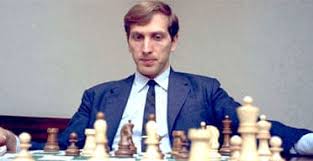Few names in the history of chess evoke as much mystique, admiration, and controversy as Bobby Fischer. A prodigy, a world champion, and a recluse Fischer wasn’t just a player; he was a phenomenon. In a world dominated by Soviet supremacy and complex positional warfare, Fischer entered the scene like a lightning strike brilliant, unpredictable, and revolutionary. He didn’t just win the World Chess Championship he transformed the very identity of the game.
A Prodigy from Brooklyn
Born in Chicago in 1943 and raised in Brooklyn, New York, Robert James Fischer learned the rules of chess at the age of six using a basic instruction manual. Within a few short years, he was defeating seasoned adults at local chess clubs and tournaments. By age 14, he became the U.S. Chess Champion, the youngest ever at the time. At 15, he earned the title of Grandmaster, launching him into global recognition.
Fischer’s meteoric rise stunned the chess world, not just because of his age, but because of his style. He played with aggressive precision, deep opening preparation, and an almost obsessive pursuit of perfection in every move.
Breaking the Soviet Stronghold
During the mid-20th century, chess was more than just a game it was a Cold War battleground. The Soviet Union dominated the world chess scene, using state-sponsored training systems to produce a stream of world-class players. Fischer, operating alone without coaches, teams, or political support, became the ultimate underdog and the ultimate threat.
His challenge culminated in the legendary 1972 World Chess Championship in Reykjavík, Iceland, where he faced reigning champion Boris Spassky. The match captivated the world not just as a sporting event, but as a geopolitical drama.
After a rocky start including a forfeited second game and threats to withdraw Fischer stormed back and defeated Spassky 12½–8½, ending 24 years of Soviet dominance. That moment wasn’t just a win it was a seismic shift. Chess, once niche and intellectual, became mainstream, even fashionable. Fischer became a household name and a global hero, especially in the United States.
A Revolutionary Approach to the Game
Fischer changed how chess was played, prepared for, and perceived.
- Opening Theory Mastery: He studied thousands of games and revitalized neglected lines in the Sicilian Defense and King’s Indian Attack.
- Endgame Precision: Fischer’s endgame technique was surgical. His understanding of pawn structures and minor-piece coordination set new standards.
- Uncompromising Style: He played to win even with Black. Draws were not an option. That fighting spirit brought excitement and unpredictability back into elite chess.
More importantly, Fischer demanded fair play and transparency, challenging the favoritism and closed-door politics of international chess federations. He also sparked interest in chess across the globe, especially in the United States, where schools, clubs, and tournaments flourished in the 1970s thanks to what was dubbed the “Fischer Boom.”
The Enigma: Withdrawal and Isolation
After becoming world champion, Fischer withdrew from public life. In 1975, he refused to defend his title against Anatoly Karpov, citing disputes with FIDE over match conditions. His absence handed the title to Karpov by default.
For nearly 20 years, Fischer vanished from competitive chess, becoming a recluse. He resurfaced briefly in 1992 for a rematch against Spassky, held in Yugoslavia, violating U.S. sanctions and leading to legal trouble. His later years were marked by erratic behavior, anti-American rants, and eventual exile.
Yet despite the controversies, his chess legacy remained untouchable.
Fischer Random: Changing the Rules Again
In a final twist of innovation, Fischer introduced a new variant: Fischer Random Chess (now called Chess960). It randomizes the back-rank pieces to prevent rote memorization of openings and emphasize creativity and pure skill. Today, the format is used in elite events and is considered one of Fischer’s lasting contributions to modern chess.
The Mind That Moved the World
Bobby Fischer was more than a chess player. He was a genius and a rebel, a perfectionist and a visionary. He brought drama, intensity, and emotion to a game long considered stoic and cerebral. His 1972 victory didn’t just crown a new world champion it ignited a global chess movement that still burns today.
Though his life ended in isolation in 2008, the ripple effects of his brilliance are still felt in every major tournament, every inspired young player, and every thrilling game that dares to break tradition.
Bobby Fischer didn’t just play chess. He changed it forever.

